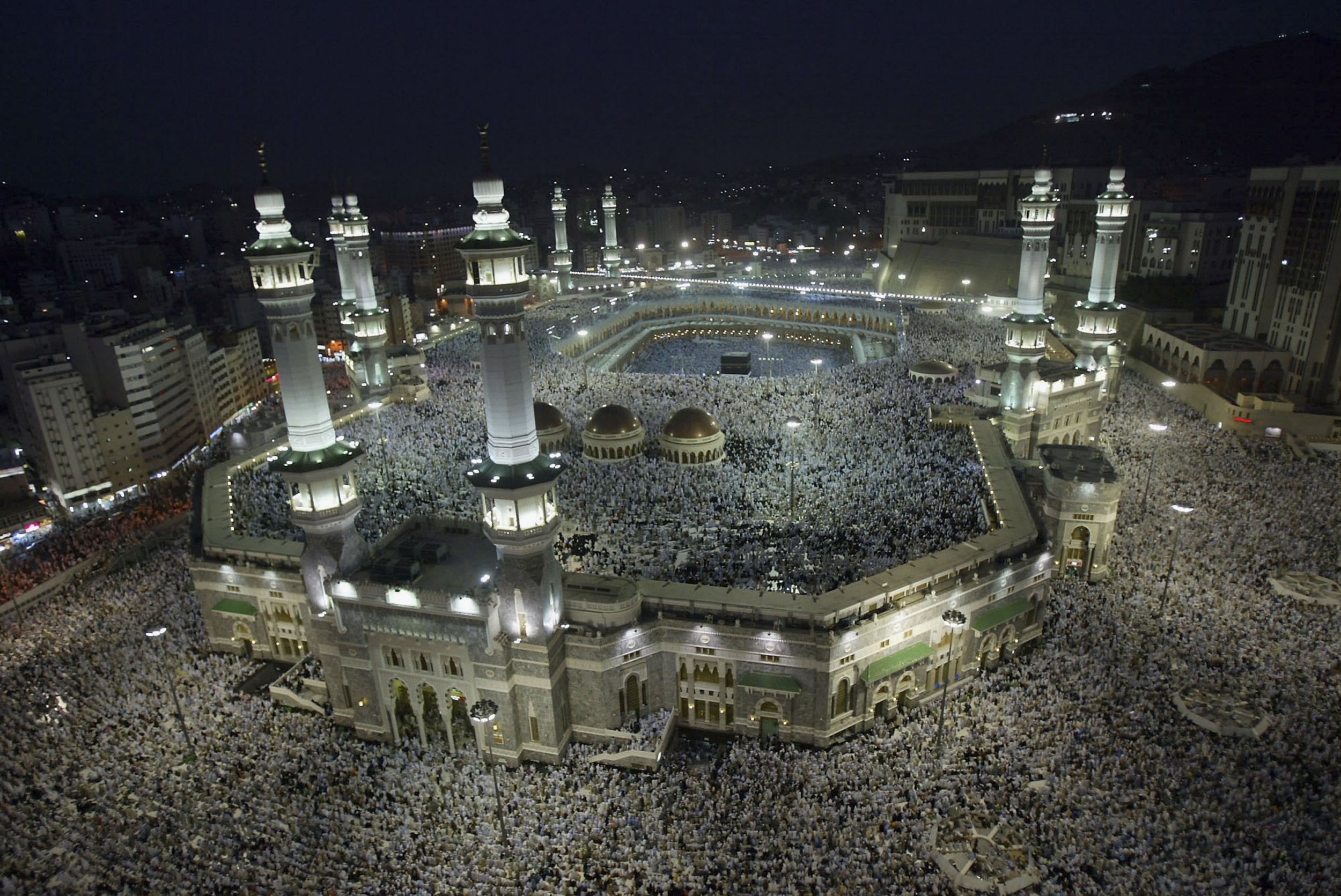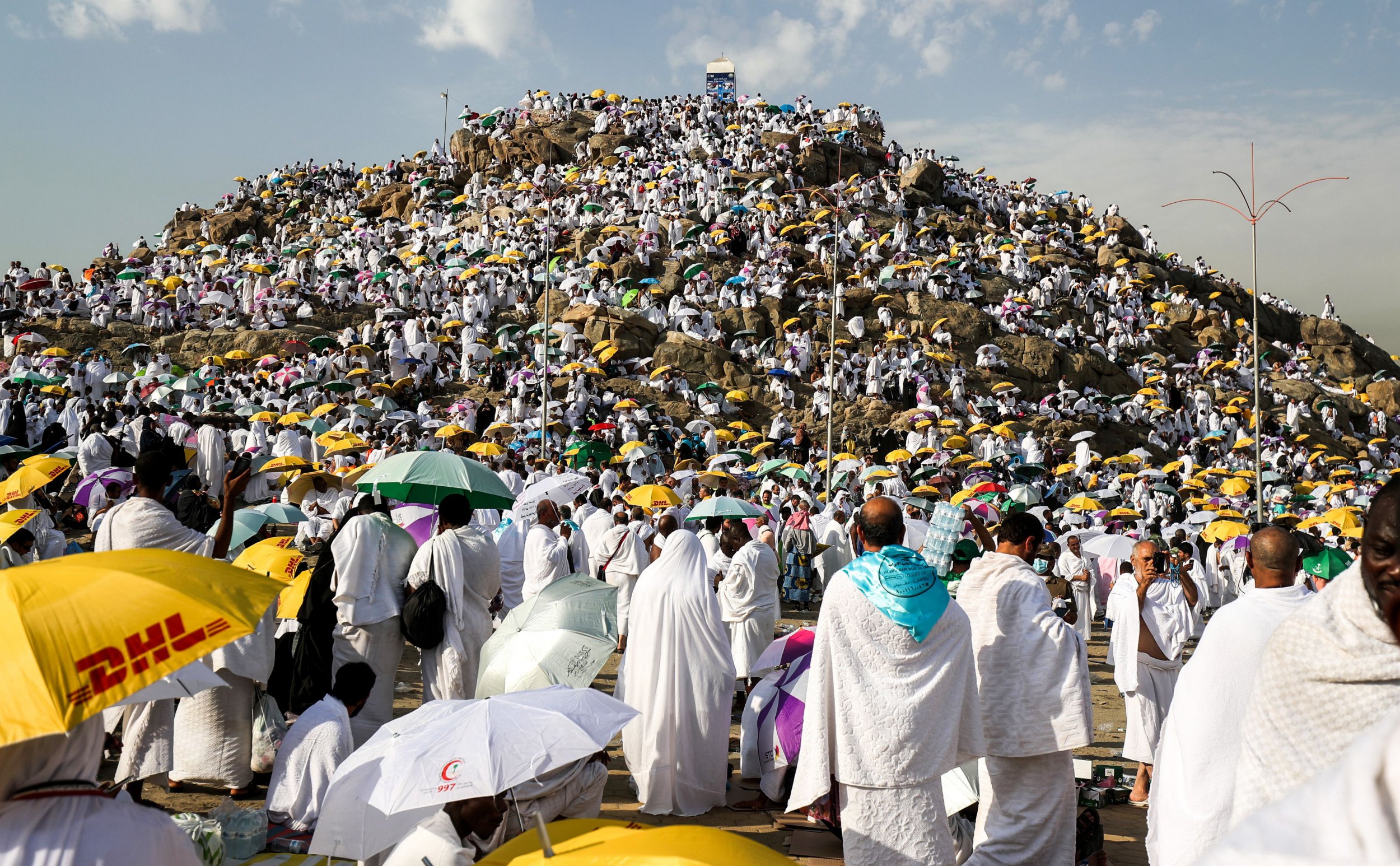Every year, millions of Muslims make the Hajj pilgrimage to the holy city of Mecca in Saudi Arabia.
However, the coronavirus outbreak means that this year, Hajj will be severely restricted, with only a “small and very limited” number of worshippers allowed to make the journey.
While the move comes as a blow for the Muslims planning and saving for one of Islam’s most important traditions, it came as little surprise given the seriousness of the Covid-19 outbreak in the kingdom.
Here’s how the restrictions work, when the more limited pilgrimage is happening and what Hajj is all about.

When is Hajj 2020?
This year, Hajj is predicted to start on Tuesday 28 July and conclude on Sunday 2 August.
Its position is based on the Islamic calendar which works according to lunar cycles, meaning that not only does it not fall on the same date each year, but it’s also not possible to predict its date with complete accuracy.
Hajj takes place between the eighth and the twelfth or thirteenth day of Dhu al-Hijjah, the twelfth month of the Islamic calendar.
Eid al-Adha always falls just as the pilgrimage comes to an end, on the tenth day of the Islamic month, so on that basis, this year’s festival is predicted to start on either Thursday 30 or Friday 31 July.
The Hajj pilgrimage is one of the most important traditions in Islam, and involves carrying out a journey to the Kaaba, a sacred building in Mecca that all prayers are directed towards by Muslims around the world.
As one of the Five Pillars of Islam, all Muslims are expected to carry out the journey at least once in their lives if they are physically and financially able to do so.
It dates back to the Prophet Ibrahim, according to the Qu’ran, but is also linked to the Prophet Muhammad who is believed to have established the rites performed at the end the pilgrimage.
Hajj is seen as a time of self-renewal and symbolises equality, bringing people together of all races and social statuses for a series or rituals taking place over five or six days.
These include walking seven times anti-clockwise around the Kaaba, throwing pebbles at a pillar to symbolise stoning Satan and sacrificing an animal, with between two and three million Muslims gathering in Mecca in normal years.

How is Hajj restricted because of coronavirus?
On Monday 22, five weeks before Hajj was meant to begin, the Saudi government announced that only people of various nationalities already residing in the country could take part in this year’s Hajj.
Furthermore, no one over the age of 65 will be allowed to take part and that all pilgrims and those serving them must be quarantined both before and after the pilgrimage.
The kingdom’s Hajj Minister Muhammad Benten said as few as 1,000 from inside the kingdom will be allowed to complete the Hajj to ensure social distancing and crowd control amid the coronavirus outbreak.
In a virtual press conference, Mr Benten said: “The number, God willing, may be in the thousands. We are in the process of reviewing so it could be 1,000 or less, or a little more.”
Saudi Arabia’s borders closed to foreigners in late February in attempts to slow down the spread of Covid-19, with the kingdom having one of the Middle East’s highest infection rates – the government suspended the smaller year-round Umrah pilgrimage earlier this year.
The kingdom imposed a nearly three-month-long 24-hour curfew in Mecca and shuttered mosques during the holy month of Ramadan.
There have been major disruptions during the Hajj in past years, including a deadly stampede and a crane collapse in 2015 which killed more than 2,500 people and an incident in 1987 in which Saudi security forces killed more than 400 people following protests.
In 1979 a group of insurgents stormed Mecca’s Grand Mosque and seized control of Islam’s holiest site, which houses the cube-shaped Kaaba that Muslims pray toward and circulate during Hajj. Thousands of worshippers were trapped inside and hundreds were killed in a siege that lasted two weeks.

